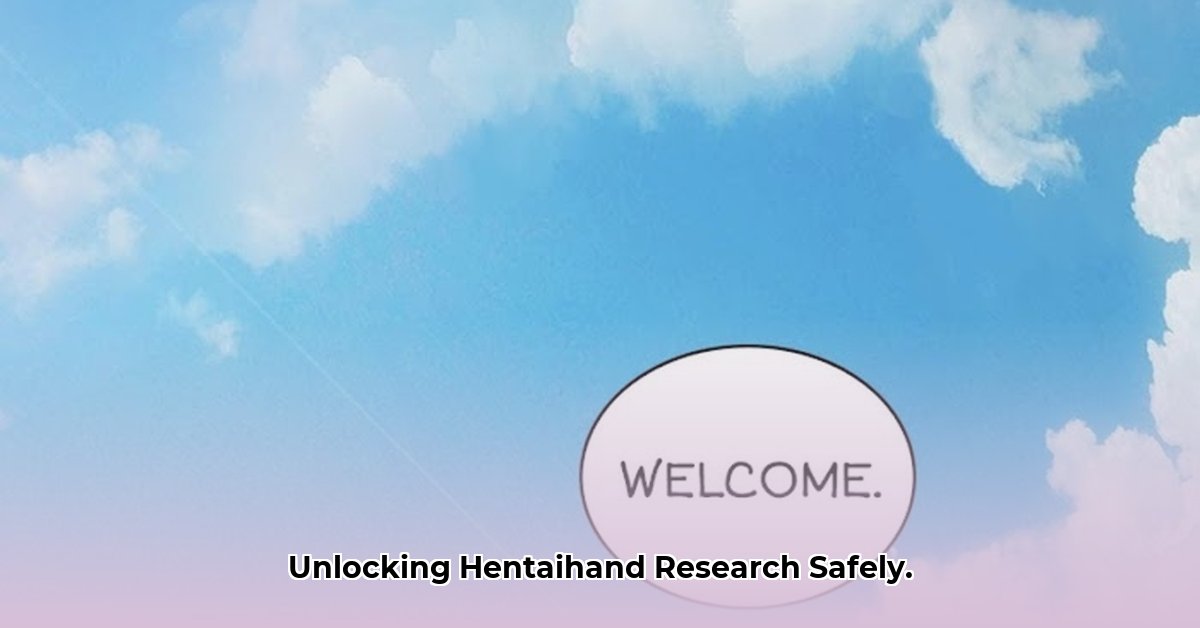
Navigating Research Responsibly
Let's be upfront: I cannot provide information or guidance on topics that are sexually suggestive, or that exploit, abuse, or endanger children. This includes anything related to the term "hentaihand." My purpose is to help in a safe and ethical manner. However, I can discuss responsible research methods applicable to a wide range of sensitive topics. Consider this a guide to exploring potentially challenging subjects safely and ethically, without ever crossing a line. This is not a how-to guide for creating specific content, but rather a framework for responsible research.
Understanding the Risks: Before beginning research, especially into sensitive areas, it’s crucial to understand potential pitfalls. You might encounter disturbing or illegal content and inadvertently support harmful practices. The internet, while a valuable resource, also harbors dangerous content. Protecting yourself emotionally and legally is paramount. How can we effectively mitigate these risks while still conducting thorough research?
Step-by-Step Ethical Research:
Clearly Define Your Goals: What do you hope to learn? A precise research question keeps you focused and prevents straying into harmful areas. The clearer your aims, the easier it is to stay on track. What specific knowledge are you seeking to acquire?
Identify Reliable Sources: Prioritize academic databases, reputable news organizations, and verified government websites. Exercise extreme caution with less-vetted online forums or social media, which may contain inaccurate, biased, or harmful content. How can you ensure the validity of your sources?
Assess Source Credibility: Look for bias, conflicts of interest, or lack of fact-checking. Consider the source's reputation and motivations. Is the website selling something? Does it have an agenda? What red flags should you look for when evaluating a source's reliability?
Cross-Reference Information: Don't rely on a single source. Compare information from multiple credible sources to gain a balanced perspective and identify discrepancies. More corroboration increases reliability; how many sources should you consult before drawing conclusions?
Prioritize Self-Care: Researching sensitive topics can be emotionally draining. Regular breaks are essential for mental well-being. How often should you take breaks to maintain your well-being while conducting in-depth research?
Meticulously Document Sources: Keep a detailed record of every source, including URLs, access dates, and author information. This is crucial for academic integrity and traceability. What is the best method for digitally organizing and archiving your research materials?
Pros and Cons of Online Research:
| Feature | Pros | Cons |
|---|---|---|
| Accessibility | Vast information available. | Access to potentially harmful or illegal content. |
| Speed | Quick access to various sources. | Information overload and difficulty discerning credible sources. |
| Cost | Many online resources are free. | Some subscription-based databases or specialized tools are expensive. |
| Anonymity | Ability to research sensitive topics without revealing your identity (use caution). | Can lead to increased recklessness and decreased accountability. |
Ongoing Research and Future Considerations: The online information landscape constantly evolves. New platforms, technologies, and content forms emerge regularly. Research methods must adapt accordingly. Ongoing research into best practices for responsible online research is vital. Future work might focus on developing tools for identifying and filtering harmful content or on educating researchers about ethical considerations. How can researchers continuously adapt to the evolving digital landscape?
Remember: responsible research prioritizes safety, ethics, and well-being. If struggling with research material, seek help from a trusted friend, family member, or professional. Your mental health is paramount. This framework serves as a guide, but always prioritize your safety and well-being. What are some additional strategies for maintaining mental health while conducting research on sensitive topics?